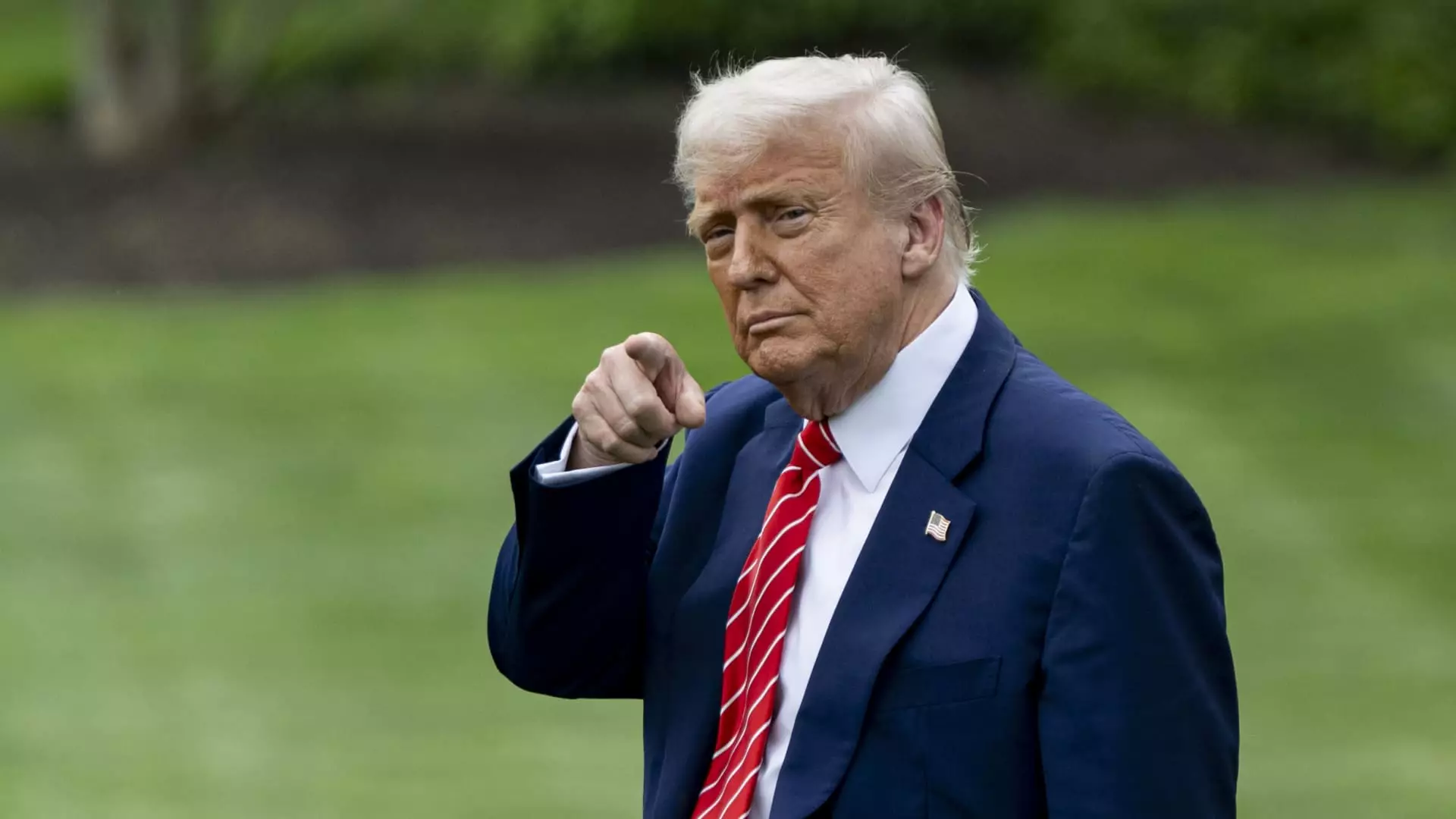As the political winds shift in Washington, a troubling provision lurking within President Donald Trump’s gargantuan spending package threatens to reshape international investment dynamics. Dubbed Section 899, this proposed tax policy is cloaked in the guise of protecting American interests from perceived foreign tax injustices. Yet, it might be better described as a “revenge tax”—an impulsive move that risks alienating foreign investors who could bolster the U.S. economy. Wall Street’s alarm signals are a stark reminder that the consequences of such legislation could be profound, yet the House appears to be unfazed.
Pushed by Republican House Ways and Means Committee members, this contentious policy aims to levy taxes of up to 20% on foreign entities if their home countries impose what Section 899 delicately defines as “unfair foreign taxes.” This rhetoric raises the question: Who decides what constitutes “fair”? In moments where diplomacy must prevail, retaliatory measures could worsen our reputation as a global economic leader. By prioritizing punitive taxation over collaboration, we risk a cycle of escalating tit-for-tat policies that could fray international trade relations.
A Threat to the Asset Management Industry
The implications of Section 899 extend well beyond Wall Street; they threaten the very fabric of the asset management industry. Experts, including Ernst & Young, have raised alarms about possible “significant implications” for cross-border investment. As passive income, especially through hedge funds and private equity, comes under the yoke of potential 50% withholding taxes, investors might think twice before bringing their capital to the U.S. Such a scenario poses a chilling effect on market growth and innovation.
Creating a hostile environment for foreign investment contradicts the long-standing principle that the U.S. should be a magnet for global capital. The Investment Company Institute’s warnings further emphasize the risk of curtailing the flow of international funds into our economy. If enacted, Section 899 would paint a dismal picture of America as a competitive investment destination, undermining decades of progress to attract foreign capital.
The Myopic Vision of Economic Sovereignty
In their fervor to protect U.S. interests, proponents of Section 899 display a rather myopic vision of economic sovereignty. While the notion of retaliating against countries with unfavorable tax policies might seem intuitively just, one must consider the law of unintended consequences. By targeting nations with “unfair” taxes, we could inadvertently foster an environment of increased taxation and protectionism around the globe.
Furthermore, the provision’s proposed annual tax increases could evoke a comprehensive reconsideration of existing international agreements. As the world becomes increasingly interconnected, the illusion of economic independence quickly dissipates. Section 899 appears to overlook the symbiotic relationship that exists between nations—where trade and investment engender mutual prosperity rather than economic isolation.
Brinkmanship in Taxation Policy
The proposed expansion of the Base Erosion and Anti-Abuse Tax (BEAT) is yet another segment of this reckless gambit. Intended to prevent corporations from shifting profits overseas, this approach overextends itself by straining foreign investors. The dated concept of “economic brinkmanship” emerges—one that relies on confrontation rather than negotiation. If our intention is to engage with foreign economies, we must pursue diplomacy over taxation punitive.
The broader implications reveal a troubling landscape: wealthy foreign nations could retaliate in ways that stymie American businesses abroad. A spiraling cycle of tax aggression could lead to a decrease in foreign direct investment and trade—effectively harming the very companies that Section 899 aims to protect. The tax proposals within the spending package, pushed by Republican leaders, signal an alarming trend toward isolationism at a time when cooperation is paramount.
The Financial Toll
The financial estimates associated with Section 899 should not be overlooked, with projections suggesting it could yield around $116 billion over the next decade. While funding for critical initiatives is essential, this figure comes at an insidious cost—potentially creating a chilling effect on future capital influxes. A myopic focus on immediate fiscal gains neglects the longer-term consequences of alienating investors.
Instead of fostering an eco-system of collaboration, Section 899 reflects an overly aggressive tactic that might backfire, cutting off avenues of prosperity over inflated financial aspirations. Rather than masking harmful policies with clever tax language, the time has come for lawmakers to critically examine the impact of such legislation on the U.S. and global economies.
Section 899’s premise, while rooted in high-minded intentions, appears to be a hazardous maneuver that prioritizes retribution over thoughtful governance. If the goal is to reshape international tax landscapes, we must opt for dialogue rather than tax warfare, lest we jeopardize our economic stature on the world stage.

